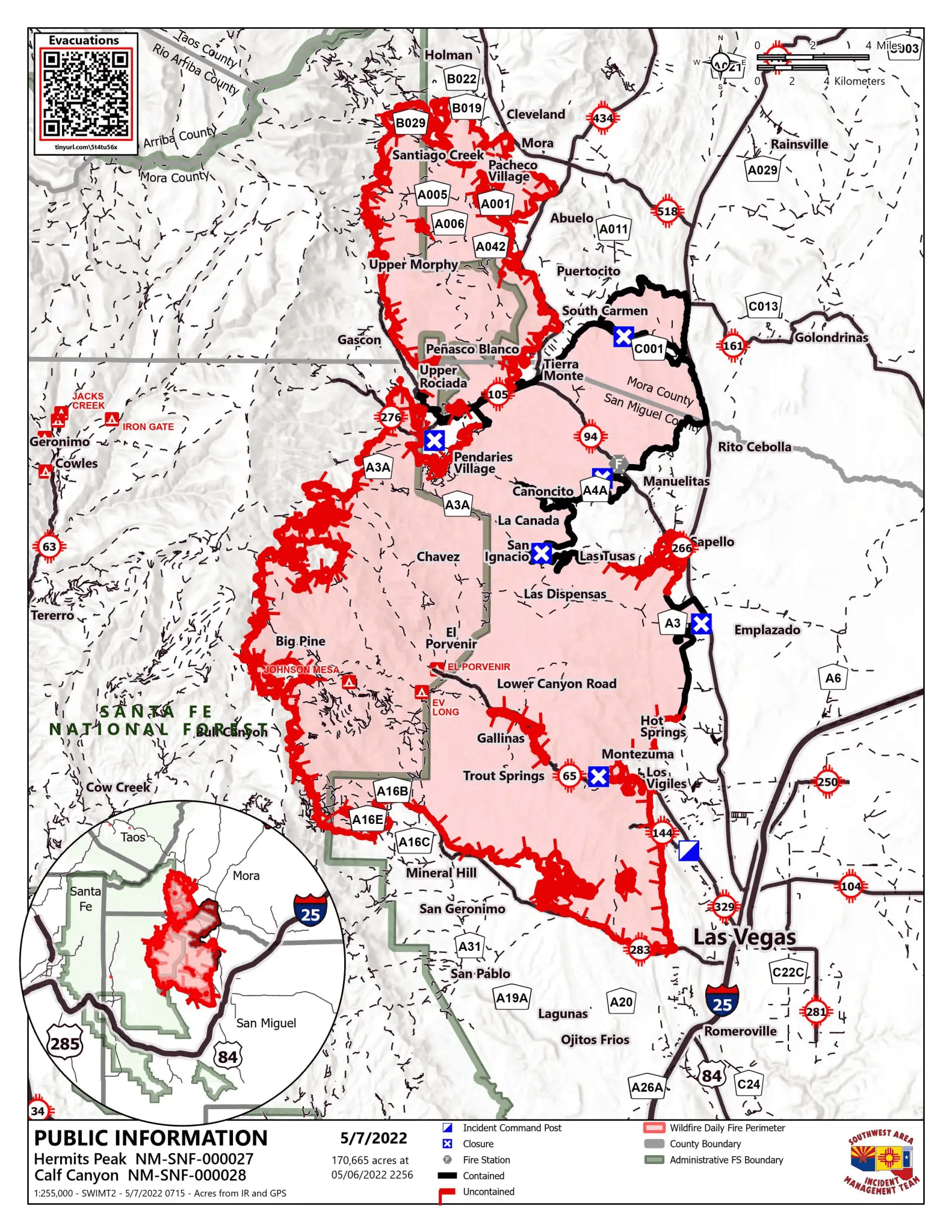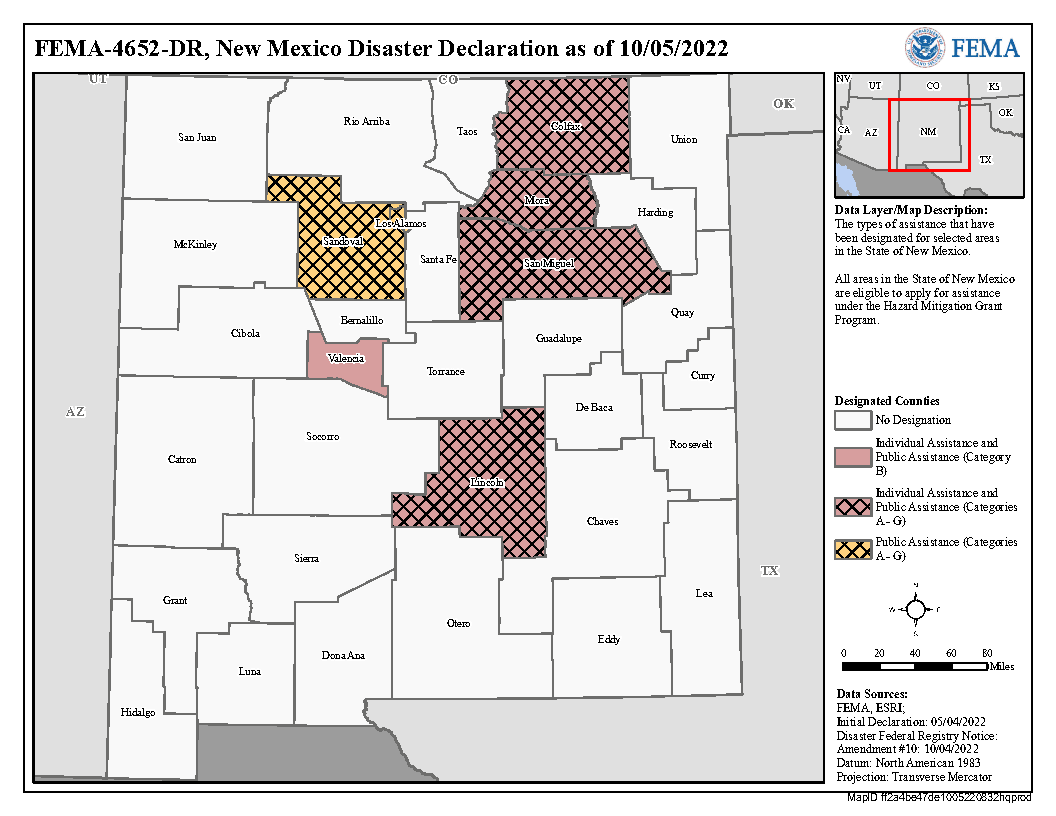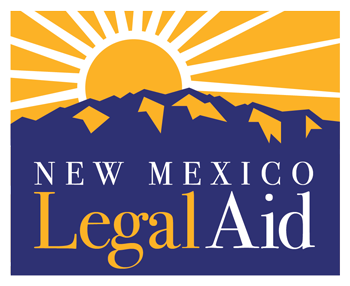How to Reach Us
If you’re facing a disaster-related legal issue, we’re here to assist you. Here’s how you can contact us:
- Call our Disaster Hotline at 1-855-204-2569, Monday to Friday, from 9 a.m. to 5 p.m., or leave a message 24/7.
- Email the Disaster Legal Services Team at disasterlegalservices@nmlegalaid.org.
- Contact our statewide intake at 1-833-LGL-HELP (1-833-545-4357).
Disaster Legal Services: How We Can Help
Many legal issues can arise after a natural disaster. New Mexico Legal Aid’s Disaster Legal Services Practice Group provides legal representation and advice in legal issues related to disasters, including cases involving:
Disaster Legal Services: Resources
Click below for resources to help with specific areas:
The federally declared disasters impacted the following areas: 2024 Disaster Area
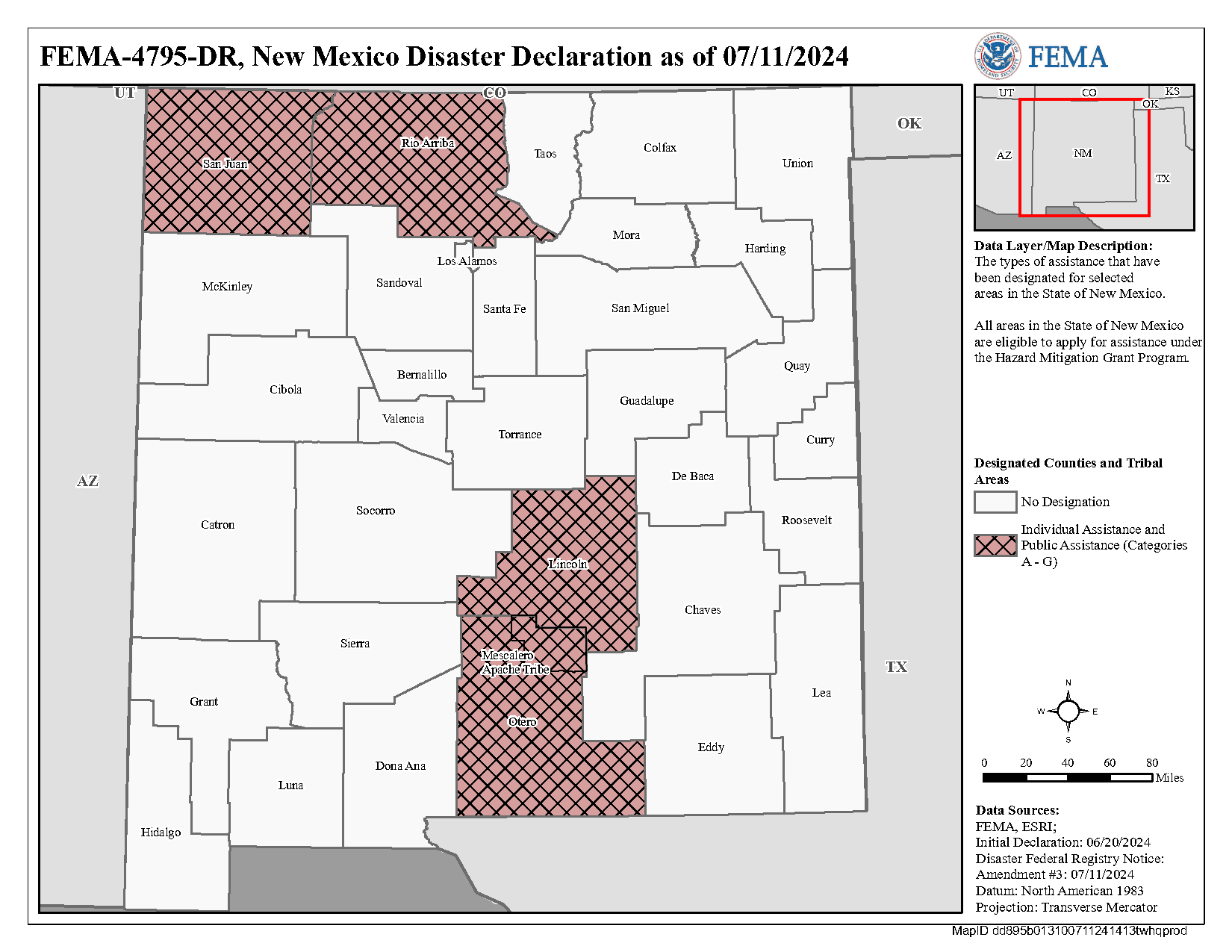
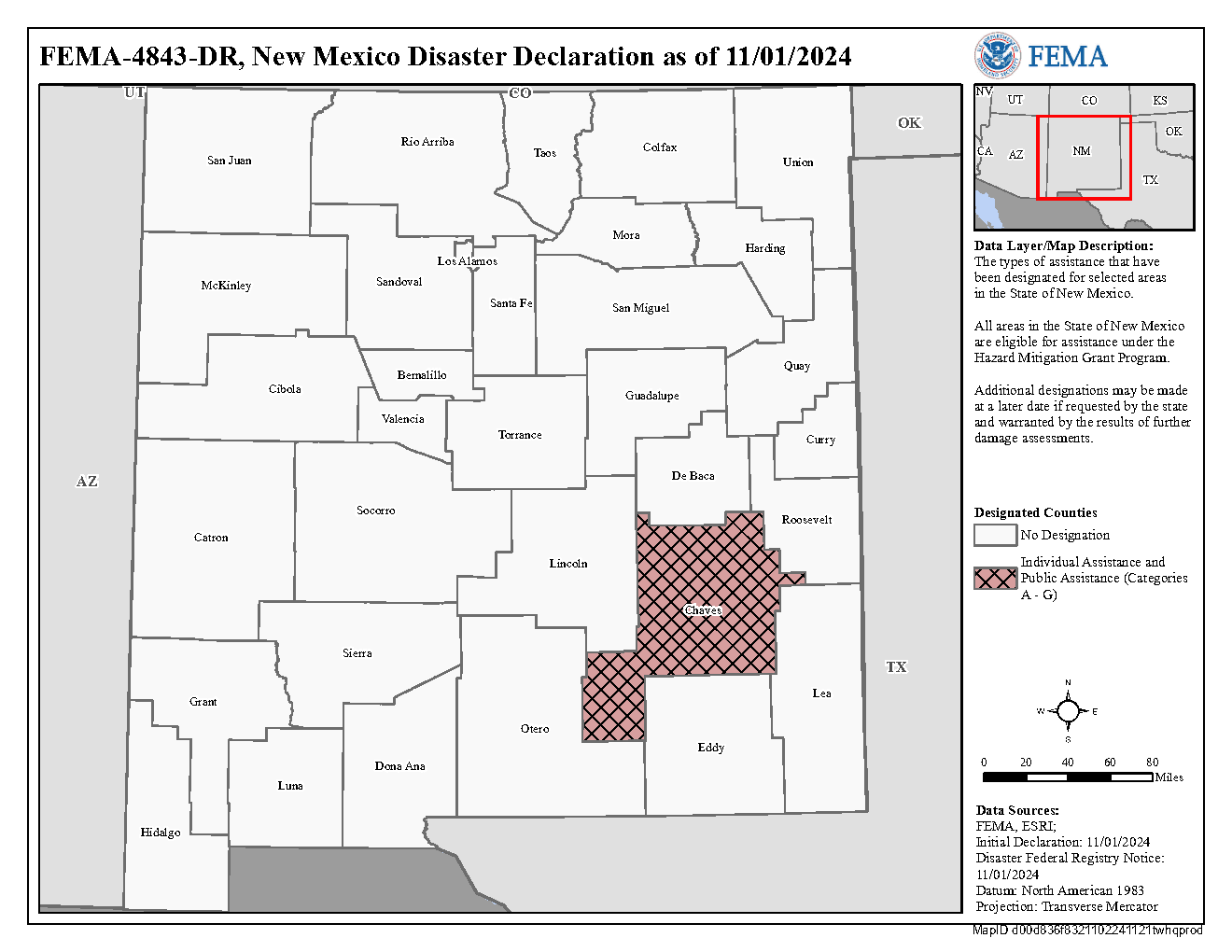
2022 Disaster Areas
